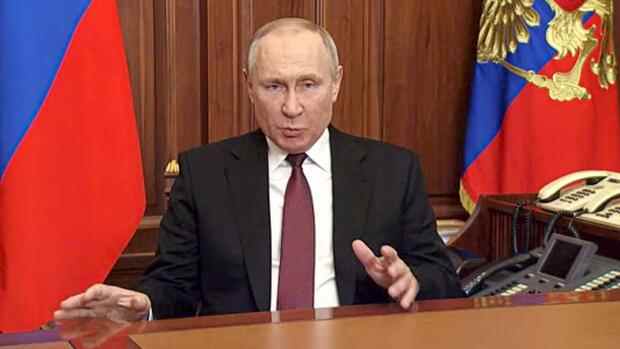The Kremlin chief’s war against Ukraine will have a major impact on the global economy, says Daniel Stelter.
(Photo: AP)
On the face of it, Russia does not play a major role in the global economy: smaller than Italy’s economy, technologically backward, and dependent on imports from the West. Nonetheless, the war in Ukraine has the potential to derail the global economy, as the situation was already fragile before the Russian attack.
Only with massive government spending programs and a flood of liquidity from the central banks was it possible to overcome the consequences of the corona pandemic.
Ongoing disruptions to supply and the fact that investments in the development of new fossil energy sources have been too low for years have led to inflationary pressure and the expectation of rising interest rates. The long-standing problems – high levels of debt, bubbles forming on the financial markets, little progress in productivity, the onset of demographic change – made the scenario of stagflation seem realistic.
War and sanctions now lead to a shock. Commodity prices, especially oil and gas, are rising significantly. Although the international oil cartel Opec is likely to expand oil production under pressure from the West, this is only possible to a limited extent and will take time.
Top jobs of the day
Find the best jobs now and
be notified by email.
In the case of gas, the situation is more difficult due to the limited loading capacity for LNG. Higher energy prices initially drive inflation, but encourage a possible recession as purchasing power falls and corporate margins shrink. This ends the rate hike cycle before it even started. The states will incur even more debt.
Independence from foreign investors
As a result, this leads us deeper into the impasse of excessive debt and (after a temporary shock) inflated asset prices. While the reaction of the US Federal Reserve after the September 11 attacks laid the foundation for the American real estate bubble and thus for the financial crisis, the attack on Ukraine threatens to take the situation to a new level worldwide – with all the risks for the financial system .
It is ironic that Russia’s economy has been comparatively solid in recent years. It has a national debt of 18 percent of gross domestic product (GDP). This is the sixth lowest level in the world.
Daniel Stelter is the founder of the discussion forum beyond the obvious, which specializes in strategy and macroeconomics, as well as a management consultant and author. Every Sunday his podcast goes online at www.think-bto.com.
(Photo: Robert Recker/ Berlin)
Until recently, the country had a budget surplus, which is why it is not dependent on foreign investors. On the contrary: Around ten billion dollars flowed into the state fund every month, the assets of which amounted to 185.9 billion US dollars in the summer of 2021, a good twelve percent of Russian GDP. Russia has foreign exchange reserves of $635 billion, the fifth largest in the world.
Above all, the country has significantly expanded its gold reserves and reduced the US dollar share. It’s no wonder that the Russian ambassador to Sweden, Viktor Tatarintsev, summed up the situation in an interview with the Aftonbladet newspaper: “Excuse my language, but we shit on all your sanctions.”
More: Putin’s war: That’s what the President is aiming for by attacking the free world
